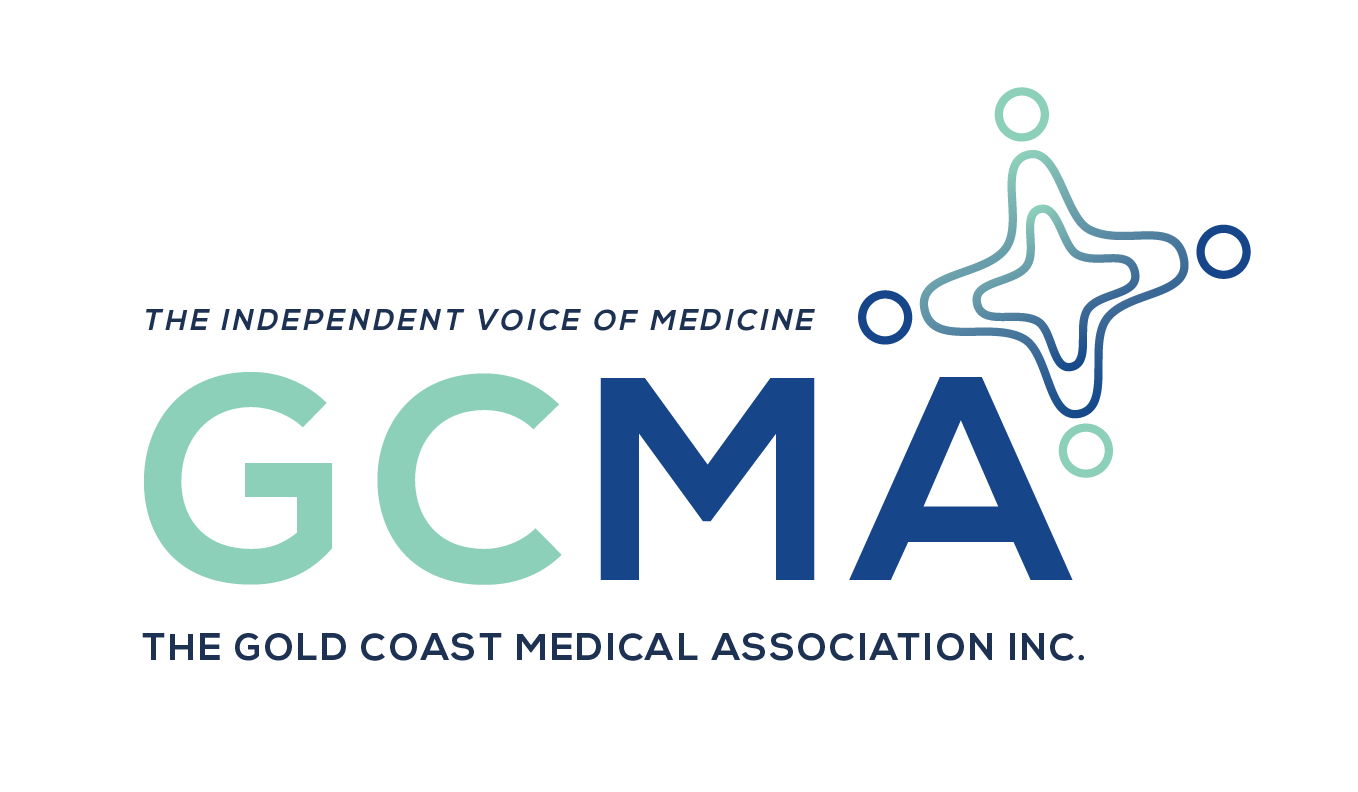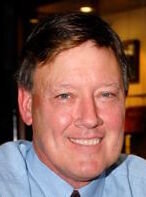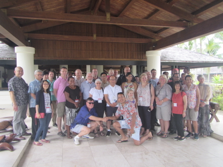CORONA VIRUS COVID-19
APRIL 2020
The coronavirus epidemic will be a major challenge for Australia. Without intense public health interventions this illness is likely to take thousands of lives across Australia. In Queensland the statistics are shocking. On conservative estimates, one-quarter of Queenslanders are likely to be infected in the first wave of the epidemic. That is over a million people in Queensland. 80% may have mild illnesses. But 20% (200,000) will be worse off, with 10% (100,000) of the population needing hospital admission and 5% (50,000) requiring intensive care treatment. If overseas figures are any guide, about half of the patients needing intensive care will die (25,000). These are horrifying figures. No Queenslander will be untouched by this virus. It is clear that unless the epidemic can be contained or the rate of infection can be slowed dramatically the hospital and health system will be overwhelmed.
Spread of this infection has gone from imported cases from overseas to now ‘community spread’. Community spread means that people are contracting the virus from other local individuals with no direct contact to overseas cases. This means that anyone on the Gold Coast can be infected with the virus and can infect others. As it is known that individuals infected with the virus but not showing any symptoms can shed virus particles and infect others, this means that Gold Coast citizens must now consider all other people as potential sources of infection. This includes brothers and sisters, mothers and fathers, children, other family members, friends, and workmates as well as strangers.
This situation makes the use of physical and social distancing and hygiene methods absolutely critical in all contacts with others. The careful practice of hand washing, avoiding handshaking and other physical contacts with others, maintaining a safe distance from others, using a mask, practicing appropriate coughing and sneezing etiquette, avoiding crowds and gatherings of any size, holding any necessary meetings outside or using teleconferencing, frequent disinfecting of touched surfaces, working from home, limited food handling are but some of the necessary methods needed to avoid the individual-to-individual spread of the virus. All members of the public must apply these interventions, with as much intensity as health professionals use them.
We suggest all members of the public use facemasks for three reasons. First, a mask will make it less likely a person with respiratory symptoms (cough, sneeze) will pass on infection; second, masks do reduce the chance of a healthy person getting infected and they inhibit individuals touching their face; and third, wearing a mask show solidarity with all in the community that we are trying to comply with distancing and hygiene advice. It is imperative that governments immediately provide all needed personal protective equipment for health personnel and also provide masks for the general population.
Individuals infected with the virus (either confirmed by test or suspected) should be isolated so they cannot infect the public. People with mild cases of the condition have been sent home to ‘self-isolate’. However, we think that is not good enough. These individuals must go to a government-provided secure accommodation location until they have recovered and are testing negative for the virus. Individuals with more severe illness should be isolated in a hospital given over to the care of coronavirus patients. On the Gold Coast, this would be the hospital with the most intensive care beds and operating theatres (as they can be converted to intensive care areas). Contacts of these cases should be quarantined in government-provided secure accommodation until they have passed through the incubation period and testing negative for the virus.
Countries in Asia that have adopted these methods have been able to get control of this epidemic (Taiwan, Hong Kong, Singapore, Korea). It goes without saying that extensive and repeated testing for coronavirus cases is essential for this approach. Australia must lift its testing capacity immediately for all individuals who are unwell irrespective of recent overseas travel or contact with confirmed cases with tests that have a high level of accuracy.
In addition to prevent virus spread, governments must close down all ways citizens can interact directly with each other in order to stop the infection from spreading. Apart from emergency services and medical, pharmaceutical and essential services (including supermarkets and water, power, garbage, and sewerage utilities), all other businesses, universities, sporting fixtures, clubs, bars, cafes, restaurants, churches, and all other places where people congregate will need to be closed. Activity will need to move online as much as possible. Individuals should not meet or congregate with others.
Closing schools is a difficult decision. Children sent home would need to be looked after. Parents working from home or out of work because of business closures would be able to provide this supervision. This task should not fall on grandparents in this situation because older members of our community are much more vulnerable to the effects of coronavirus. A special case needs to be made for the children of health professionals if we want these individuals to continue to care for the sick. For example, one or more closed schools could be used to provide supervision of the children of healthcare workers who agree. The care of these children could be managed by stood down teachers who want to work. On balance we believe pre-emptive closure of schools (before students or teachers test positive for the virus) is the most effective strategy of reducing virus spread.
The aim of all these steps is to suppress the epidemic to quickly get it under control. This is more ambitious than a mitigation strategy that tries to reduce the peak of the epidemic and spread it out longer. Mitigation is unlikely to protect the health system from being overwhelmed by very sick patients with coronavirus. Suppression methods apply very severe restrictions on individuals and business and society in order to reduce the transmission rate of the virus. The transmission rate is the number of people an infected person will infect on average. At the beginning of an epidemic in an unprepared country (like Australia) the transmission rate is one infected person will pass the infection on to two to three others.
Without any interventions the rise of the infected cases becomes exponential. This is what was happening in Australia and Queensland at the moment. If the transmission rate is above one the epidemic takes off. If it can be lowered to below one the epidemic dies down. The goal of the suppression strategy is to get the transmission rate to as close to zero as soon as possible. New Zealand is adopting this approach. This country hopes to eliminate the virus.
It is unclear for how long the application of intense suppression methods is needed, but overseas experience suggests between one to three months. After this, a gradual loosening of restrictions might be possible but the transmission rate must be kept under one for the epidemic to be controlled.
The good news is that this is possible. A combination of each individual citizen applying physical and social distancing and painstaking hygiene practices, as well as extensive health department testing and isolation of cases and contacts, and government closing down citizen physical interaction can be very effective. This approach was used to suppress the epidemic in Wuhan, China and is the method used to contain the epidemic successfully in Taiwan, Hong Kong, Singapore and Korea (after a delayed start). It is now the model adopted by New Zealand. Suppression of the epidemic gives us time; time to identify effective treatments, and time to develop an effective vaccine. There is no reason that suppression cannot be implemented in Australia. It will challenge our social cohesion and require mutual support between all our citizens. And it requires Australian governments to trust that the Australian people can respond to the challenge and the impositions involved in order to reduce the magnitude of the disaster that otherwise would rapidly overtake us.
prof philip morris (gcma president)
pmorris@iprimus.com.au | ph 0422 545 753
References:
Coronavirus: The Hammer and the Dance
What the Next 18 Months Can Look Like, if Leaders Buy Us Time
Thomas Pueyo
20 March 2020
COVID-19: Imperial researchers model likely impact of public health measures
Dr Sabine l van Elsland, Ryan O’Hare
17 March 2020













